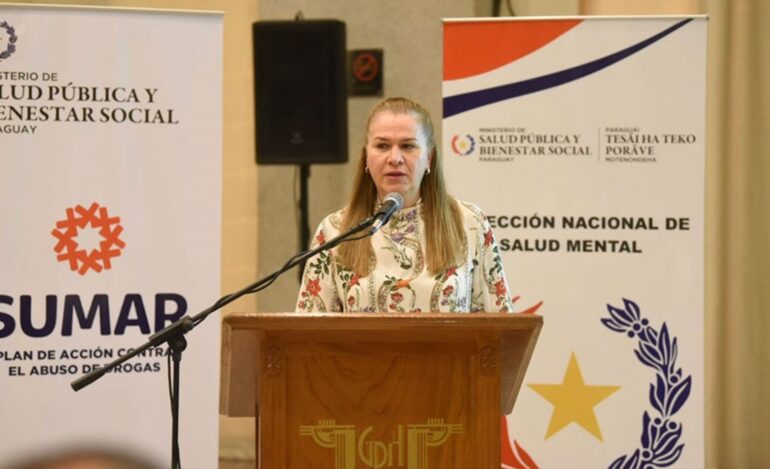With the implementation of the SUMAR Plan, the public health system went from having 0 attentions to people to addiction situation, to treating more than 200 cases in recent months. These treatments seek to respond to cases that do not require hospitalisation.
The Minister of Health, María Teresa Barán, provided the numbers on Monday after a meeting to evaluate the plan that brings together 22 institutions in three main axes: prevention, treatment and combating drug trafficking.
In the treatment and rehabilitation axis, the main drawback is the lack of psychiatry professionals. “We have about 170 psychiatrist doctors for addiction treatment and we need more than 700 to meet the needs,” Barán said.
That is why the Ministry of Health initiated a training program in which doctors from other specialties acquire knowledge to manage addiction situations that do not require hospitalisation.
“We have trained more than 360 doctors, and to have zero attentions in the field of addiction, today we have more than 200 people cared for”, the minister stressed, talking about providing care for detoxification.
Addiction Situation Rehabilitation Centres
For cases of internment, the Government is preparing the establishment of the Residential Centre for Addition and Rehabilitation (Ditres) in the city of Piribebuy, financed with resources seised from organised crime under the administration of the Secretariat of Se seized Property and Commissions (Senabic).
The already operational center will be extended to Ditres with an investment of Gs 15 billion (approx US$2 million), as announced earlier this year, while plans are in place to enable other similar sites for internment in the country.
According to data from the Ministry of the Interior and the National Police, there are some 90,000 people with addiction problems in Asunción and the Central Department. Minister Barán indicated that 90% of these estimated cases do not require hospitalisation, so the training of doctors in action protocols and psychiatrists within the public system will continue to be strengthened.
However, the Minister pointed out that even with detoxification and internment programs, if work is not done on the community and family component, these people will fall back into the addiction situation, so the Government’s strategy will also promote more prevention and focus programs in communities for the prevention of drug abuse.


